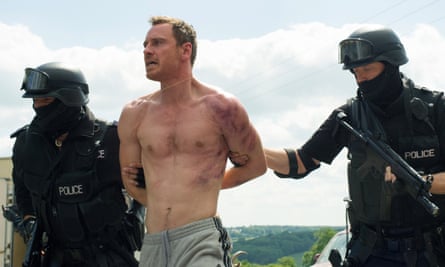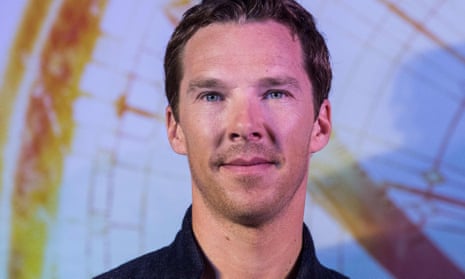At the Toronto film festival a few days ago, BBC Films announced their film adaptation of Mikey Walsh’s bestselling memoir Gypsy Boy. The wrenching story of a Romany Gypsy born into a tough family of bare-knuckle boxers – and moving away from that background with difficulty after realising he’s gay – is being turned into a father-son drama. While the main character Mikey has not yet been cast, Variety announced that Walsh’s father, Frank, will be played by Benedict Cumberbatch.
But casting Cumberbatch goes far beyond the realm of tone-deafness. With talk of whitewashing now rife in the film industry, there should be some kind of response to this decision. Cumberbatch is from the most privileged echelons of British society, playing one of the nation’s most disadvantaged ethnic minorities. So far, the rest of the cast and crew of Gypsy Boy are also made up entirely of non-Travellers – a choice that would be outrageous for any other BME film production.
Cumberbatch is undoubtedly a hugely talented actor and we can expect a nuanced performance from him. But the problem here is deeper, and the implication that any actor can throw on a different ethnic identity at a whim is troubling. From the outset, Gypsy Boy is exhibiting a degree of carelessness about the group of people it seeks to portray. The Gypsy, Roma and Traveller (GRT) community is among the most derided and rarely portrayed ethnic groups in British cinema.
In more cloistered cinephile circles, film directors such as the Romany-born Tony Gatlif (Latcho Drom, 1993) and Serbian arthouse favourite Emir Kusturica (Time of the Gypsies, 1988) have done pioneering work in their explorations of travelling life. In English-language cinema, the exemplary 2005 film Pavee Lackeen (directed by Perry Ogden) is an impressive, documentary-style drama featuring a family of real Irish Travellers.
But overall, particularly when it comes to films released theatrically in the UK, GRT protagonists are scarce. The handful that average moviegoers can name either parrot racial epithets such as “pikey” (Guy Ritchie’s Snatch), borrow language and cultural elements from Travellers with little acknowledgement (Clio Barnard’s The Selfish Giant) or use their Traveller characters as token working-class tough guys.

Last year did see one notable if lukewarm exception: Trespass Against Us, starring Michael Fassbender and Brendan Gleeson. The film, based on the real-life exploits of a Traveller crime family, did attempt to take a jab at casual racism in British life. But, populated as it is by conmen and thieves, it hardly defies negative stereotypes. And more pressingly, the director Adam Smith did not cast actors from a Romany background. Borrowing from GRT people’s stories without including them in the creative process is hardly progressive.
When we face the realities of Travellers’ marginal existence – a group of people who have the lowest life expectancy, school attainment rates and standards of living in the UK – it smacks of borderline insult for Cumberbatch to take on the mantle of oppression for a film role. This is a former public schoolboy who once said that his biggest experience of being “ostracised” was “for being brought up in a world of privilege”.
That’s a painfully far cry from the regular mistrust and fear that Romany Gypsies are treated with in contemporary Britain. Last week, Travellers’ Times magazine shared a horrific video of a police eviction in the West Midlands. Although there were no charges for resisting arrest, and no other crimes were committed, a police dog attacked an unarmed Gypsy man. The man’s leg was savaged for a minute and he later needed surgery. This shocking footage has not been widely shared in national news media, nor met with the type of online outrage typically reserved for police violence against racial minorities.
While it may seem tangential, the response to that footage is the most extreme iteration of the same endemic issue. There’s a gnawing silence on the subject of racism against GRT people, in the arts and film community and in the media more generally. If GRT people are denied minority status by this blindness, the results can be dangerous. Casting a posh white actor as a Romany Gypsy with little or no backlash is an extension of the same problem.
Last month, a whitewashing scandal around the casting of Hellboy reached all the way to its Hollywood executives and stars. Another white Englishman, actor Ed Skrein, was cast in a role originally written and created for an Asian-American person. In response to criticism, Skrein decided to leave the position open for someone better suited to the part (ie, someone racially appropriate). It’s not the first time Cumberbatch has found himself in hot water over a similar race-related controversy. In Star Trek Into Darkness, he played Khan, a role intended for someone of Indian descent.
Unlike Cumberbatch, Skrein chose to step down from the role and released a statement. “It is clear,” he wrote, “that representing this character in a culturally accurate way holds significance for people, and that to neglect this responsibility would continue a worrying tendency to obscure ethnic minority stories and voices in the arts.” Skrein’s decision and accompanying statement was applauded on social media.
This points to one conclusion: that film festival programmers, critics and film-makers have a troubling blindspot when it comes to the Gypsy and Traveller population. If a white person takes on a role playing a person of colour, the uproar is swift. Romany Gypsies’ apparent “whiteness” does not erase their ethnic-minority status. Whether the film world’s silence on the subject speaks of simple unfamiliarity or a deeper bigotry, it desperately needs to change.
